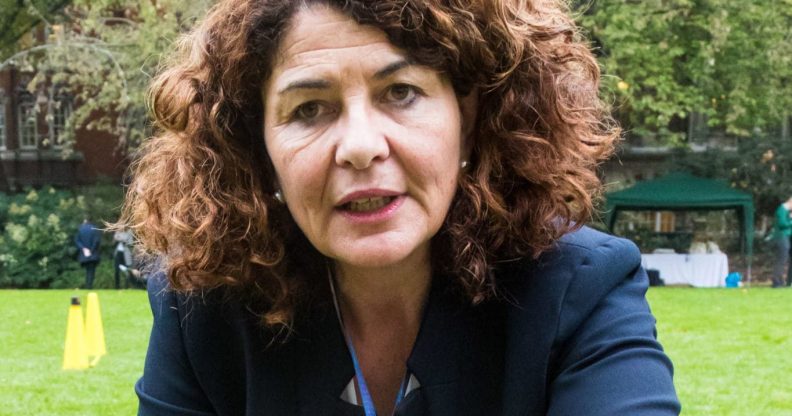Labour MP tables controversial bill to criminalise buying sex. Sex workers say it would put their lives in danger

Diana Johnson MP (Labour, Hull North) in 2017. (Paul Davey / Barcroft Media via Getty Images)
Trade unions, sex workers, women’s rights organisations and thousands of individuals have united to oppose a Labour bill that would bring the “Nordic model” sex work law to England and Wales.
Due to be put forward today by Labour MP Diana Johnson, the bill on “sexual exploitation” would criminalise paying for sex and target sex workers who advertise online.
There are around 72,800 sex workers in the UK, almost 90 per cent of whom are women. A similar law has already been introduced in Northern Ireland, while Scotland is separately consulting on it.
Trans women, migrant women and women of colour are targeted for arrest and raids under existing prostitution laws, say the English Collective of Prostitutes (ECP), which Johnson’s bill fails to take into account.
“This week, like every week since the coronavirus pandemic lockdown, the ECP and other organisations have been giving out emergency payments and food vouchers to sex workers worried how they are going to make ends meet and get through Christmas,” said Laura Watson from the ECP.
“If women MPs want to help women exit prostitution they should be supporting this lifesaving work, targeting benefit sanctions and demanding money for mothers, not proposing legislation that further criminalises sex work which will inevitably drive it further underground, making it harder and more dangerous for women.”
Johnson’s bill is opposed by Amnesty International, Hampshire Women’s Institute, Women Against Rape, anti-violence organisation National Ugly Mugs, harm-reduction charity Release, train drivers’ union ASLEF, and Ipswich and District Trades Union Council
Amnesty International said in a statement: “We know that internationally the criminalisation of buyers has exacerbated violence and stigma against sex workers.
“Sex workers who are undocumented or with insecure immigration status are affected the most. Poverty and marginalisation are root causes of sex work that must be addressed.
“Full decriminalisation of sex work provides the most effective framework to improve the human rights of sex workers, including the right to health and to access justice.”
The Nordic model, which makes it illegal to buy sex, was hailed as progressive by feminist organisations when it was introduced in 1999. Versions of the law have since been introduced in other countries including Norway, Iceland, Ireland and Canada.
But in 2016, Amnesty International backed calls from sex workers rights’ organisations to decriminalise sex work globally, on the basis that it improves safety and working conditions for sex workers.
Decriminalisation of sex work is also supported by the World Health Organization, UNAIDS and Human Rights Watch, among others.
More than 1,600 people have also written to their MP protesting Johnson’s “sexual exploitation” bill.
Grassroots group Women Against Rape said: “Rape has been effectively decriminalised. The current arrest and conviction rate for rape (with under one per cent of reported rapes ending in conviction) are a green light to violence.
“Domestic violence and murder have soared under COVID. In our experience, criminalisation of sex workers prevents most from reporting violence, as they fear prosecution themselves.
“Criminalising their clients would also make sex work more dangerous. It is effectively criminalising sex workers through the back door by making their work illegal.”
Sex work and the coronavirus pandemic
The coronavirus pandemic has had a significant impact on sex workers across the world, with many finding themselves unable to making a living safely.
Many LGBT+ people across the world who make a living from sex work have been vocal about the challenges the pandemic has posed for their work. In countries where sex work is fully or partially criminalised, sex workers struggled to survive during lockdown and were unable to access the financial support available to other workers.
Earlier this year, the English Collective of Prostitutes demanded that sex work be decriminalised as many faced financial uncertainty during the pandemic.
Trans sex workers previously told PinkNews how the lethal combination of transphobic discrimination and the criminalisation of sex work puts their safety and survival on the line.

